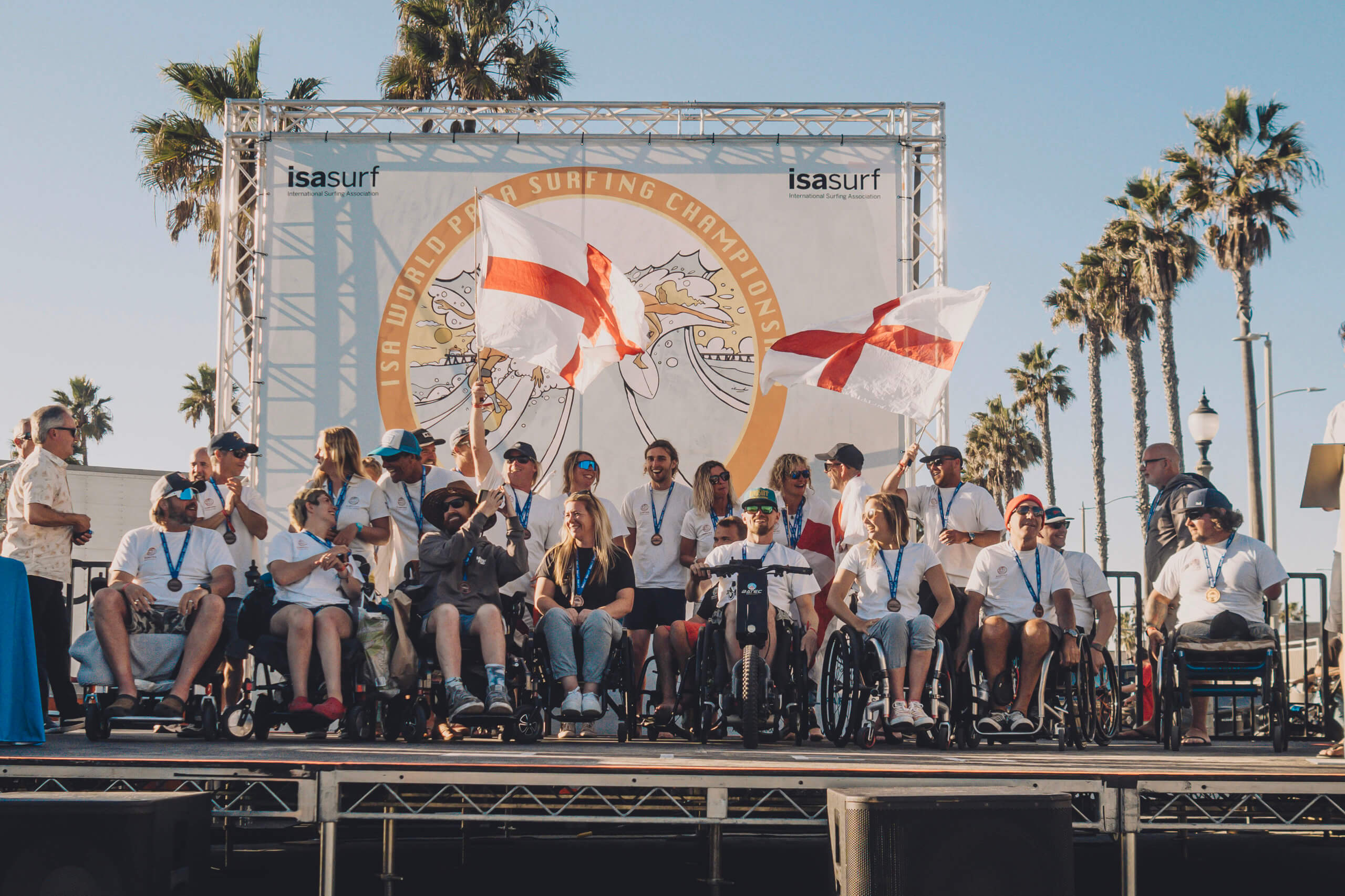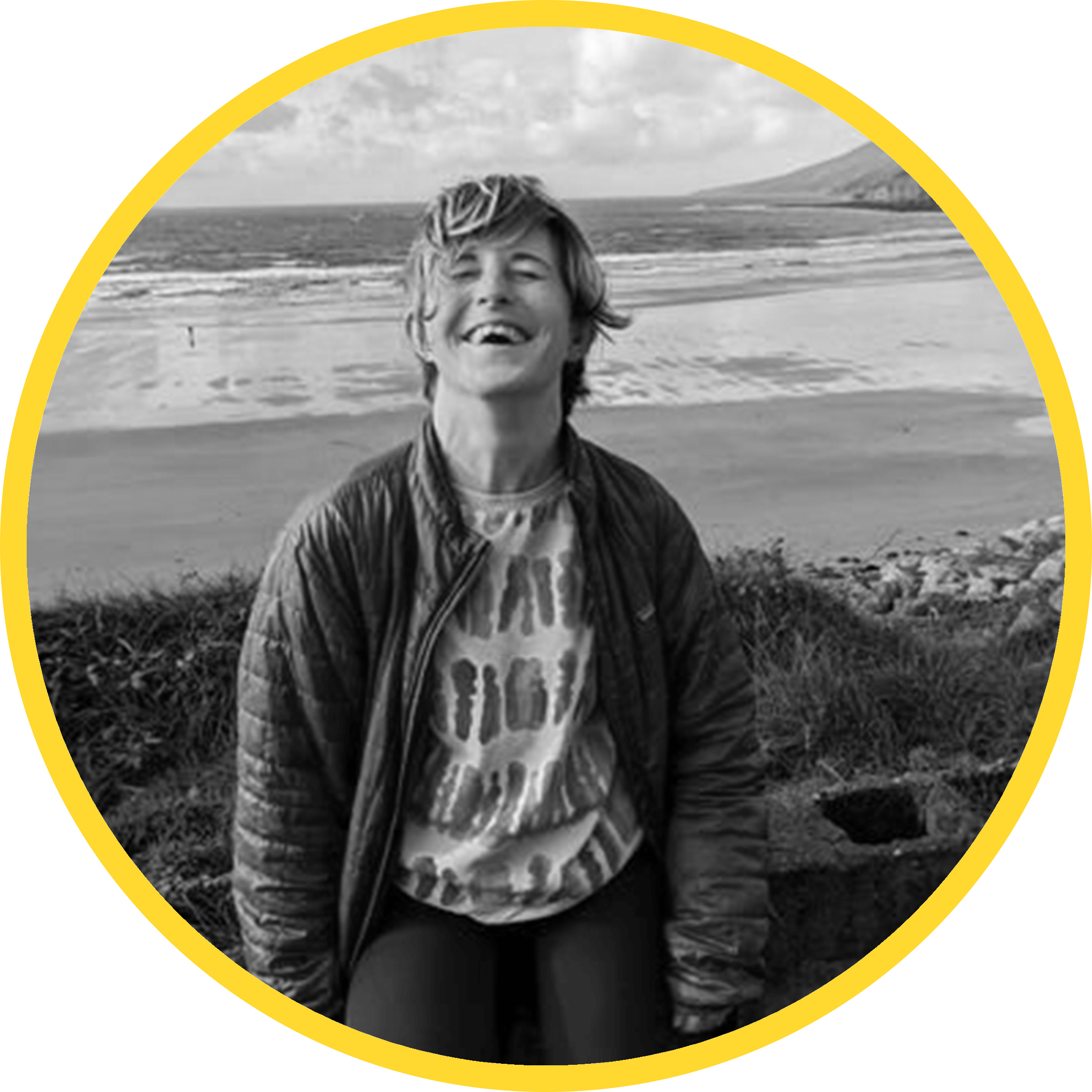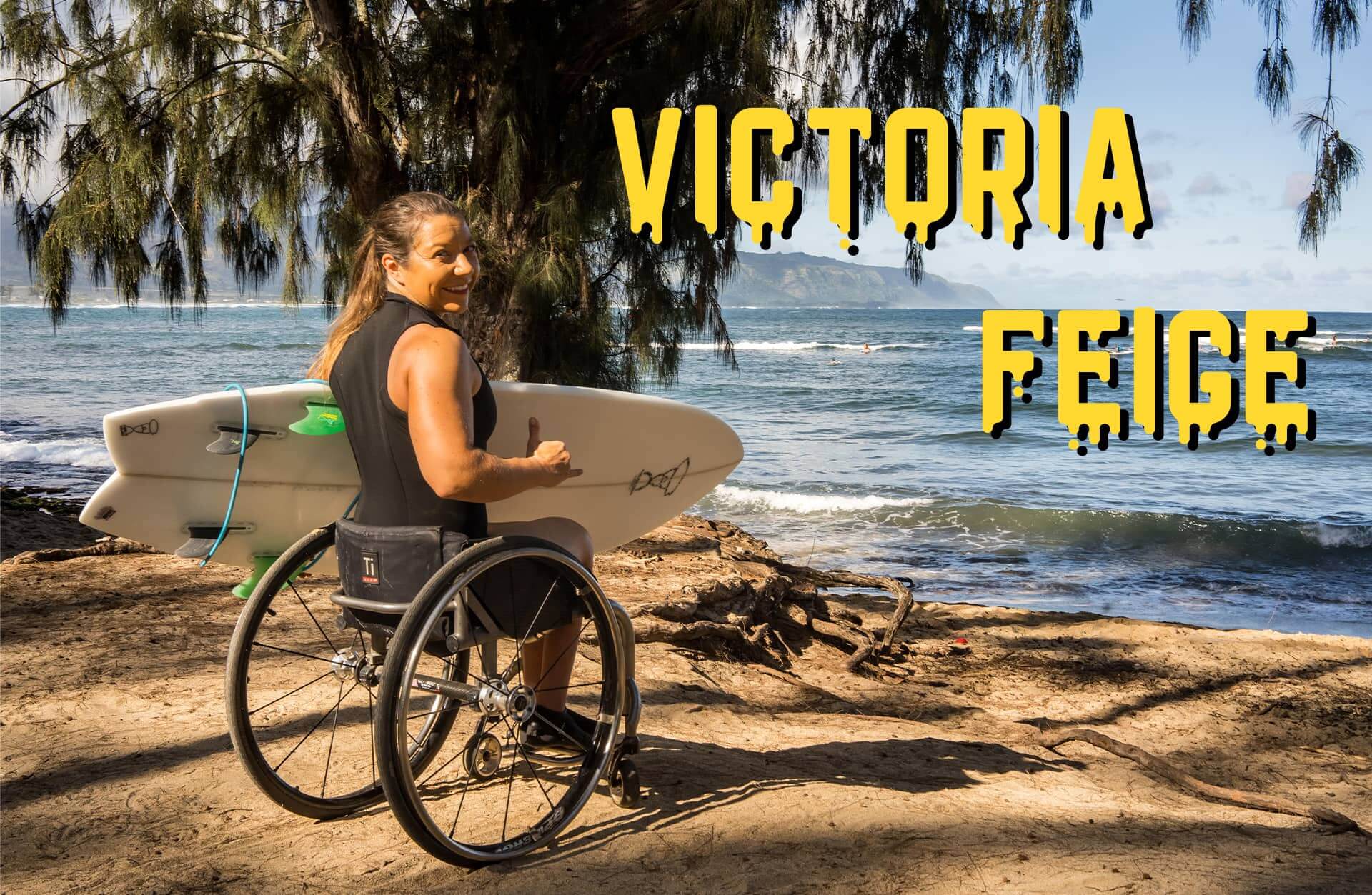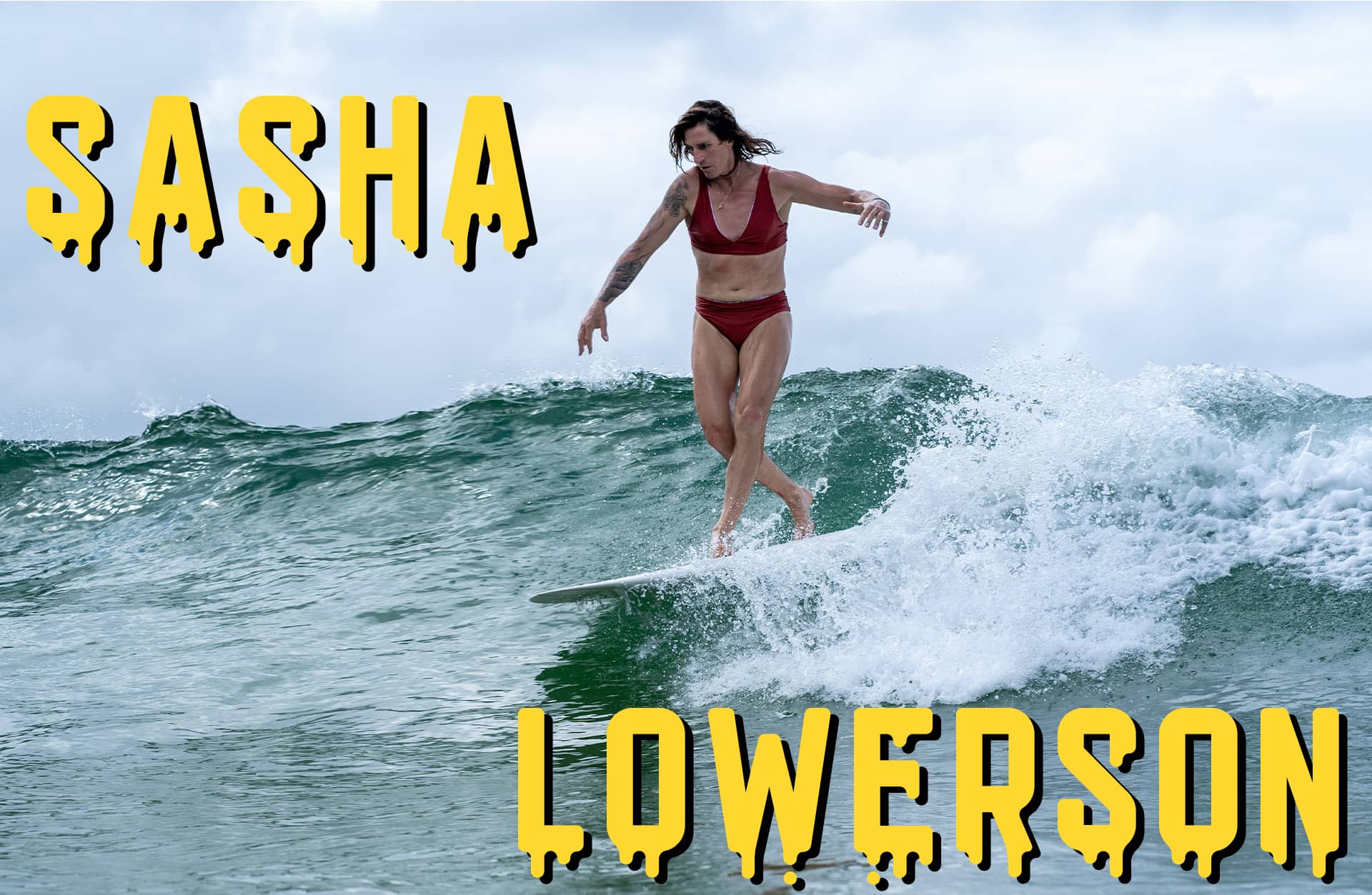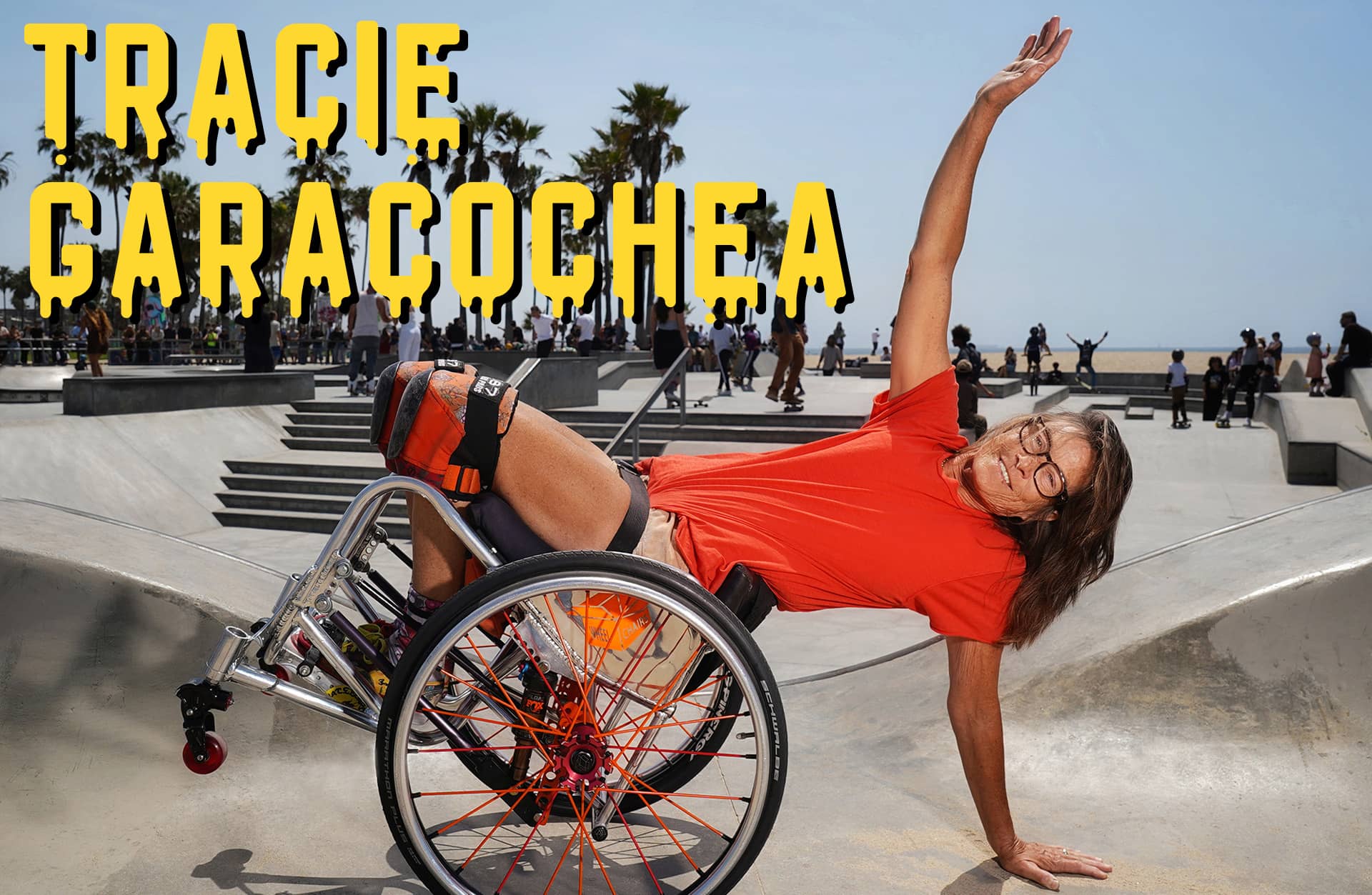SURF // 01 DEC 2023
THE WITCHES OF EASTWICK SWAP BROOMSTICKS FOR SURFBOARDS
Team England have just returned from the ISA Para Surfing World Championships in Huntington Beach, where the waves barreled, and the medals shone with equal parts Californian sunshine and the glare from Melissa’s Day-Glo jumper, emblazoned with a spiky cactus on a popsicle stick.
None of our athletes have professional contracts to follow the full competition calendar. For some, this was their only time competing on the world stage all year. Yet, our fourteen strong team won four medals. A gold and two silvers and a team medal, copper, coming in fourth. The team medal is based on individual placements which are added together, rather than raw medal tally. This is the best team medal Surfing England have ever won, over all disciplines.
Yet Britain’s mainstream media and our national team and surf centre will publish more content about surf therapy than they will our hard-won medals. I want to make the case for us, starting with the slogan “bring the sting”.
That’s the slogan of the Irukandjis, a type of extremely venomous jellyfish, and the name of Australia’s national integrated pro surfing team. Astonishingly, we beat them to the team medal. Not bad when our Para surfing national championships was called the “feel-good event of the year”.
Team Australia aren’t bringing good feelings with seven medals from eleven athletes, they bring something more important: professional surfing on show for the watching Paralympic Games Committee. The truth is our sport hangs in the balance. They could declare either Para surfing or Para-climbing as its debut sport for LA 2028 at the close of the year.
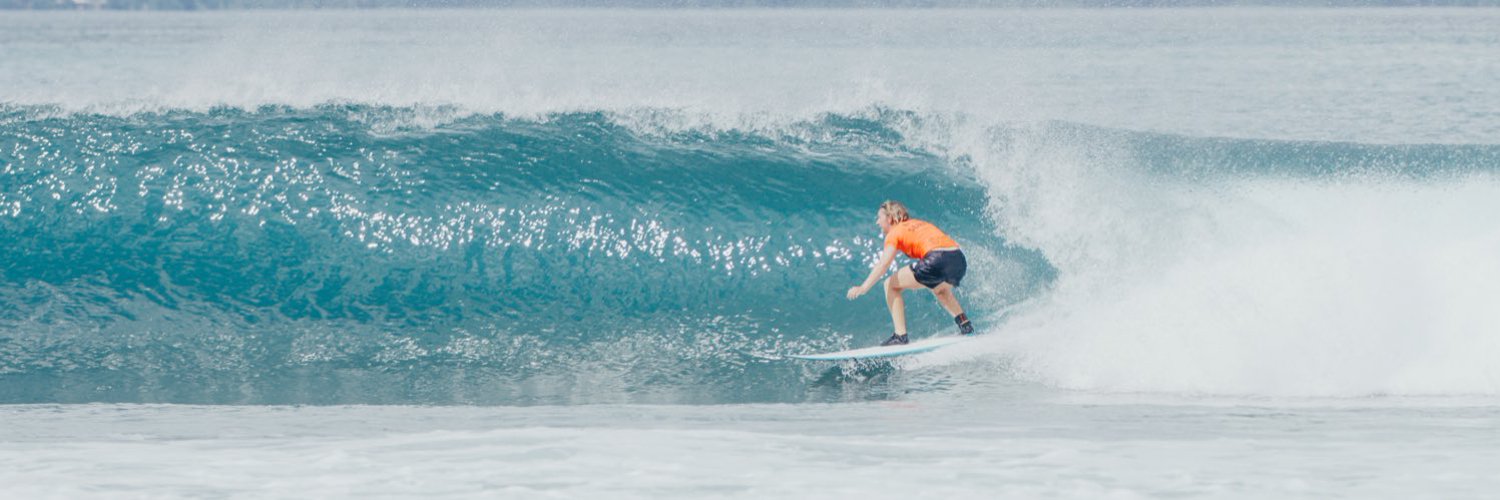
Honourable mention to England’s Charlotte Banfield, who won our team’s only gold medal but I need to write this article for the other two. Why just our silver medalists, Melissa Reid and Zoe Smith? There are many reasons: the winners of their finals both come from surfing lineage with fathers who are successful surfboard shapers. Silver for them, represents an incredible effort to keep up with a sport which is outrunning the culture which sustains it.
Surfboard shapers don’t just shape boards, they shape the culture, too and gatekeep as hard as they can. Walk into any surf museum and it is the boards that denote the time periods in our history. Now, try convincing any renowned surfboard shaper to throw his (and it always is a his) rulebook out and adapt his shaping style to your disability, as an amateur, female surfer. It is not impossible but it would be a lot easier, and cheaper, if your dad did it.
Butter Mag is a 100% reader supported publication. By subscribing to Butter’s Patreon for as little as 2$/month, you keep Butter churning, so that together we can create a more diverse outdoor sports community.
Another reason is that when I met Melissa and Zoe three years ago, they didn’t smile, they talked straight and their skater girl clothes were those of the effortlessly cool. They hated me. I have a grin that cracks my face in two and an exhausting enthusiasm that instantly put me on their kill list. Still, they have come to know and to respect my steely interior, fused within the fires of equity and justice. Seeing each other training consistently helped too. There was undeniable motivation in seeing the progress we were making alongside one another as the women who kept on showing up. We then took turns to campaign to elevate elite performance within the adaptive team, backing each other up if staff tried to dismiss us.
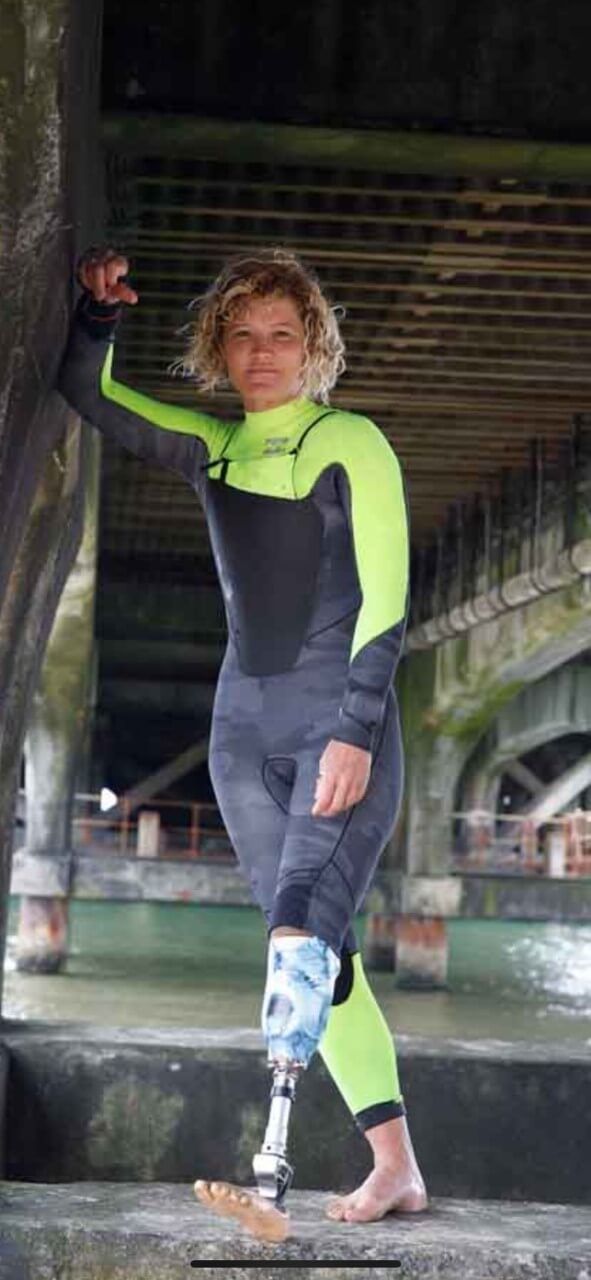
We call each other the Spice Girls (blinky- Melissa, limpy-Zoe and wheely spice-yours truly) but have been christened more widely as the “Witches of Eastwick”. It’s a beautiful irony our team would pick film characters that try to teach us all about female oppression and where to shove it. It’s no secret that surfing is a male dominated sport and Para surfing is no different. While it fancies itself more inclusive, to voice your opinion when you’re driven and female is as challenging in disabled sport as anywhere else.
Still as a disabled athlete it’s the clash between a Para surfing’s progression as a professional sport and surf therapy for disabled people that worries me the most. As a team we subsist on the charity and goodwill of voluntary action or donation, a lot of which is borne by surf therapy. In return, our disabled, joyful faces are often used for marketing. This currency: surfing access in return for visible joy or constant thanks can be very detrimental when you’re trying to become a serious surfer.
Take Melissa and Zoe, they have perfected the athlete-stare-down, have gorgeous resting bitch face but their smiles won’t light up the podium. Instead, they have glowing performance records. Zoe has been improving her medal position consistently, one podium step at a time, a coach’s dream. This is good, because for lack of any other female coach, Melissa has coached her all year. Melissa who matched her silver, lost out to Puerto Rican youngster Aleli Medina, who competes in non-disabled events in her country and like all visually impaired athletes she is assisted by a spotter (colloquially known as “eyes”, for surfers who have low vision) in those contests.
Melissa paddled out at Boardmasters earlier this year, our UK stage for surfers looking to get signed. Unlike Aleli’s experience in Puerto Rico, Melissa wasn’t allowed her eyes but decided to compete anyway. She came third in her heat, and in an interview asked for more national opportunities to showcase elite adaptive surfing. In a BBC article published soon after, Boardmasters were keen to point out they sponsor surf therapy through their charitable arm.
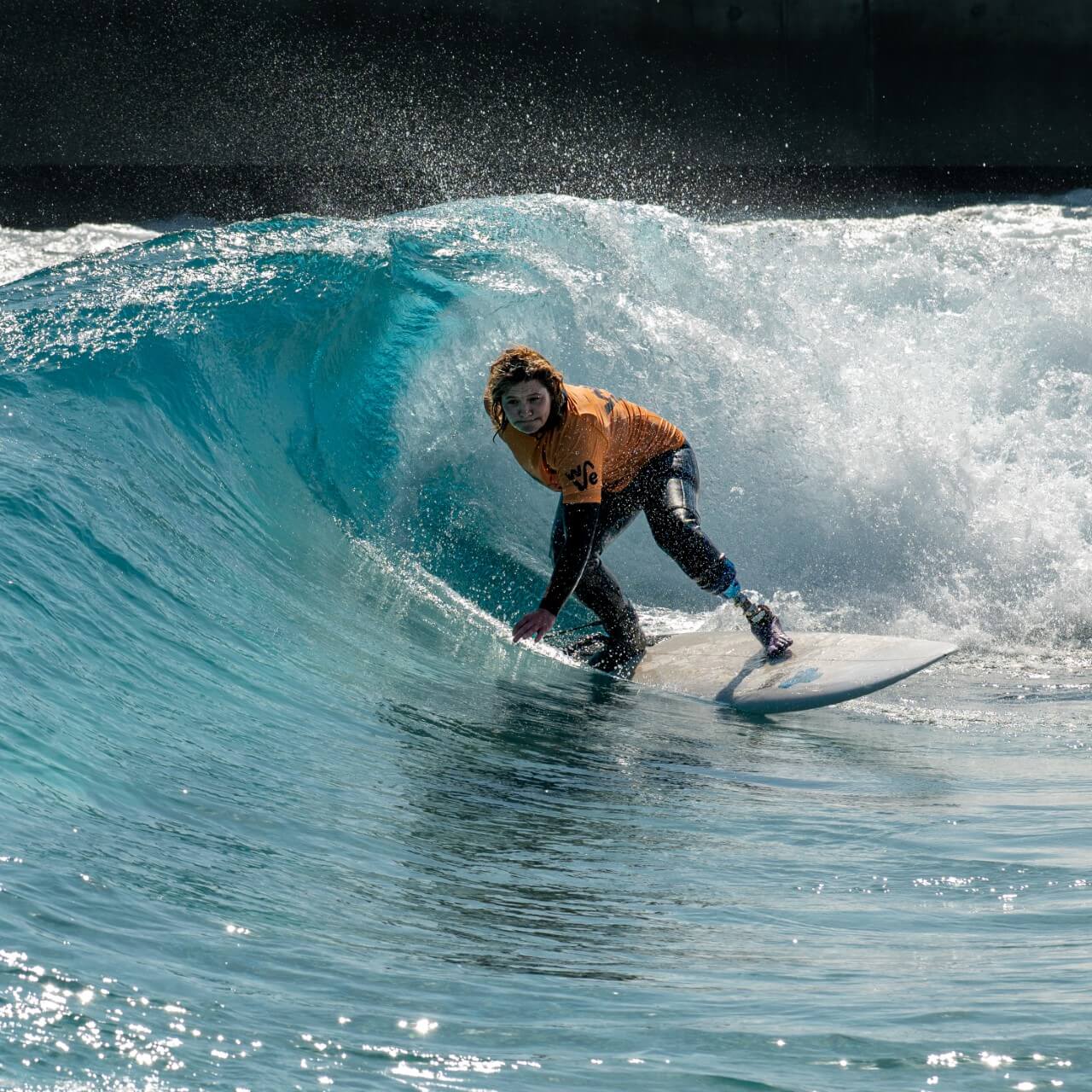
The threat is that the charitable money will disappear, and no professional sponsor will be there to replace it. This year, Team South Africa’s Para surfing sponsors pulled out and what had once been a huge team, dwindled because of the crucial number made up of athletes from townships and other low-income backgrounds. Their call and response, one of my favourites and so loud of “One Team” then “One Dream” was absent in the opening ceremony. It also became an overwhelmingly white team, too. When I asked my friend and South African surfer Michele McFarlane if she knew why the sponsors pulled out, she said what I had expected; she believed that they wanted to focus on surf therapy instead.
Zoe and Melissa are the picture of performance, with visible abs included. But I’m proof of how soft they are on the inside. I slept a few nights on Melissa’s sofa with her dog Grizzly, as she learnt about my type of surfing; studying how to push and catch, finding me a contact with a beach wheelchair so I could surf. It’s not the first time I’ve been to Cornwall but it’s the first time it felt truly accessible to me, because of her.
As well as making sure her prosthetic leg wouldn’t snap this year, Zoe had a cancerous thyroid removed and a wrist tendon sewn up, neither of which kept her out of the ocean long. I followed what I could of our world surf league, in between stints of a gruelling clinical trial. Even when Zoe didn’t think she’d be able to attend the World Championships, she promoted every one of my wins (for all my teammates as well). Though my Spice Girls will ban the word heartwarming, what attracts people to surf therapy can be found in elite adaptive surfing, too.
Enjoying this article? Consider subscribing to our Patreon for as little as 2$/month to ensure we can keep sharing more stories like this in the future!
Take my new coach and pusher, Marcio Franca Dias, ex Qualifying Series surfer and current Team England Stand Up Paddleboard athlete who was drawn to Para surfing because of its “good vibes”. Terrified I might have led him on with some lingering aspect of my positivity, we have discussed, over and over, why he is doing this. He knows we aren’t here simply to have fun, the preferred phrase by Para surfing England coaches.
He didn’t once free surf at my World Championships in case he got injured, so focused was he on my performance of which he is a physical part. I compete as a three-person team, he keeps me stable as I lie prone on my board and launches me onto waves. Forty years in now he has watched able-bodied men’s surfing devolve. He talks of the pettiness; greasing each other’s boards, cold-shouldering competitors, biased judges, it all made him turn away. Here, he sees a chance for the sport he loves made anew.
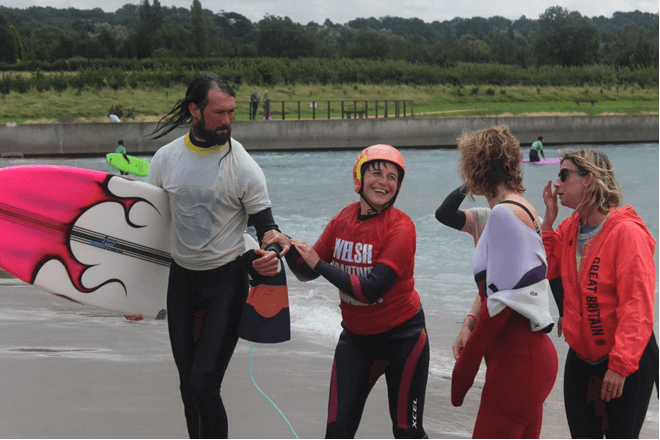
We are re-making this sport, Melissa, Zoe and I and all the athletes, Charlotte too, who have so thoroughly focused on their performance. Seeing those once prickly Spice Girls when I come out after a heat; so into my surfing they let their guard down a little, encouraging words here, a hug, a brief grin there. I missed my final by less than a point and it was agony and yet, there they were, bearing it with me.
For Melissa and Zoe turning silver into gold next year wouldn’t be so hard with a pro contract. Getting me to my final in the biggest women’s classification will be no mean feat so I’ll need one too, for good measure. Maybe we’ll get that with a Paralympic announcement, maybe not. Whatever happens, the Spice Girls’ contributions to Para surfing performance will be noted, if only in Butter Mag and by me. To the Witches of Eastwick, my future world champions: suck on that.
